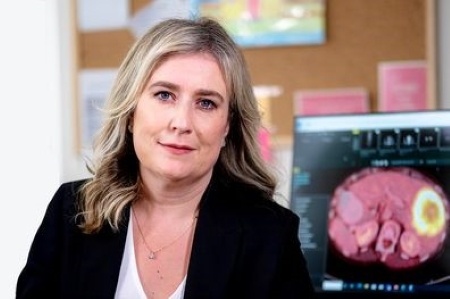
Australian-born and trained physician Dr Shani Paluch-Shimon, director of Breast Oncology at Hadassah Hospital, helps shape global standards for breast cancer treatments. She believes the individual is integral to decision-making and feels empowered every time she helps a patient navigate her personal cancer journey.
Dr Paluch-Shimon provides specialised guidance to test for mutations to decide on treatment for women who have them and to guide the women on risk-reducing measures. “I need to know my patients well to discuss decision options. A woman post-childbearing may make different choices than a young single woman.”
One out of 40 Ashkenazi Jewish women, in contrast to one in 250 to 300 women in the general population, are carriers of BRCA1 or BRCA2 mutations related to breast and ovarian cancer, as well as other cancers. Dr. Paluch-Shimon provides specialised guidance to test for mutations to decide on treatment for women who have them and to guide the women on risk-reducing measures. “I need to know my patients well to discuss decision options. A woman post-childbearing may make different choices than a young single woman.” She recommends that all Ashkenazi Jews consider BRCA testing and that all women with a family history of breast, ovarian, or pancreatic cancer or a personal history of breast cancer seek genetic counselling to evaluate if they need testing, irrespective of ethnic background. If found positive, patients need to be in special screening programs that include breast MRIs. They also need to consider such risk-reducing measures as removal of the ovaries to reduce the risk of ovarian cancer.
Another area of interest for Dr. Paluch-Shimon is breast cancer in young women, who make up 6 to 7 percent of all new annual breast cancer diagnoses. Because she recognises that young women with breast cancer have special needs, Dr. Paluch-Shimon has instituted a patient navigator system to help young women through the maze of breast cancer tests, appointments, and treatments. Hadassah is a pioneer in including a dedicated psychologist as part of the treatment. “Issues of body image, sexuality, and fertility used to be considered peripheral, but they aren’t. We are dedicated to ensuring the best quality of life. To preserve fertility we can freeze eggs, embryos, or even fragments of ovarian tissue that can produce new ova when treatment is done.”